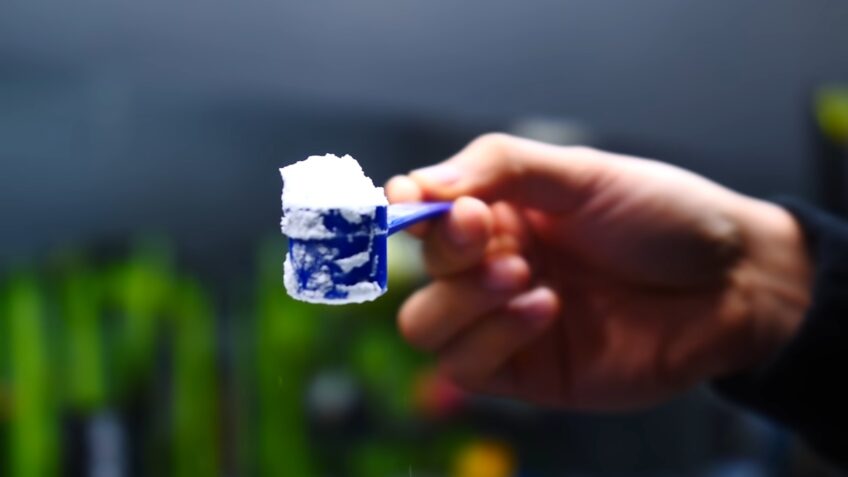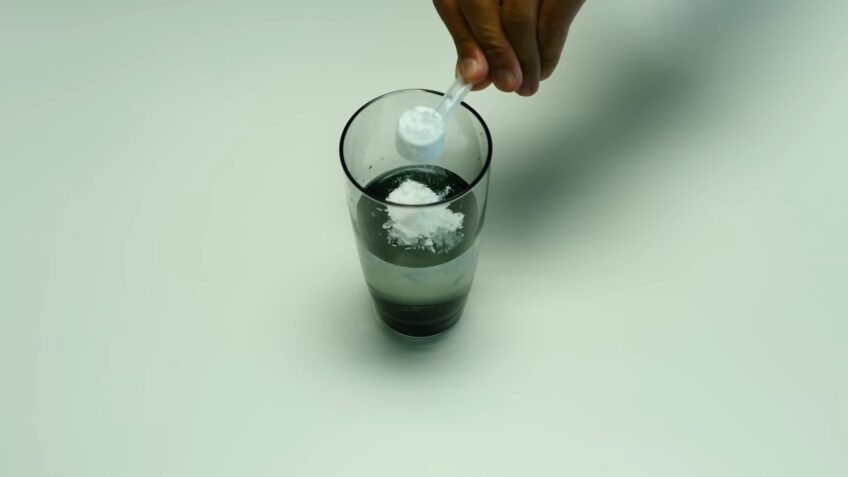After years spent as a fitness instructor, I have fielded many inquiries about various supplements, but one of the most frequently discussed is creatine. There’s a prevalent question that’s often debated: Does creatine make you gain weight? Let’s unpack this topic and decipher its effects on weight gain in detail.
Page Contents
A Brief Overview
Creatine is a naturally occurring amino acid that’s found in meat and fish and is also made by the human body in the liver, kidneys, and pancreas. It converts into creatine phosphate or phosphocreatine and is stored in the muscles, where it’s used for energy.
The reason why athletes and bodybuilders often supplement with creatine is to increase the phosphocreatine stores in their muscles. The additional stores can then be used to produce more ATP, which is the key energy source for heavy lifting and high-intensity exercise.
How Does Creatine Work?
Our muscles use it to produce energy during high-intensity, short-duration exercises, like lifting weights or sprinting. This supplementation increases your muscles’ phosphocreatine stores.
- Phosphocreatine aids the formation of ATP, the key molecule your cells use for energy and all basic life functions.
- During exercise, ATP is broken down to produce energy.
- The rate of ATP resynthesis limits your ability to continually perform at maximum intensity, as you use ATP faster than you reproduce it.
Creatine supplements increase your phosphocreatine stores, allowing you to produce more ATP energy to fuel your muscles during high-intensity exercise. This is the primary mechanism behind creatine’s performance-enhancing effects.
Supplementation and Weight Gain

Many users of creatine report weight gain as one of the product’s apparent effects. To clarify the facts, we’ll delve into the nature of this weight gain.
Creatine-Induced Water Retention
One of the most immediate changes often observed when starting this supplementation is an increase in weight. This can often be attributed to water retention.
This supplement draws water into your muscle cells, increasing protein synthesis. When you consume it, the muscles will retain more water. As a result, water weight might increase by one to three pounds in the first week of supplementation. This is often perceived as weight gain.
Weight Gain from Increased Muscle Mass
Over the long term, creatine aids in increasing muscle mass. It does this by enhancing your muscles’ work capacity, which means your workouts will be more effective, and you’ll likely see better results.
- Creatine can boost muscle strength, allowing for increased work capacity and hence, better workouts.
- This increased work capacity can lead to improved muscle growth over time.
However, it’s essential to note that the weight gain associated with creatine is primarily due to water retention and increased muscle mass, not fat gain.
The Safety of This Supplementation

Creatine is one of the most well-researched supplements in the world, and studies lasting up to four years reveal no negative effects.
Short-Term Side Effects
Like any supplement, creatine is not without its potential side effects. In the short term, some people report stomach pain, nausea, diarrhea, and muscle cramping.
Although these side effects can be uncomfortable, they’re usually temporary and often subside as your body adjusts to the supplement.
Long-Term Side Effects
In terms of long-term side effects, research indicates that even prolonged use of creatine is safe. However, there’s a prevailing myth that creatine can damage the kidneys and liver, but these claims have been extensively debunked by scientific research.
- Numerous studies have shown that creatine does not cause damage to these organs in healthy individuals.
- However, those with pre-existing kidney or liver conditions should consult a healthcare professional before starting any supplement regimen.
Key Takeaways

Creatine has proven to be a valuable tool for those looking to improve athletic performance and muscle growth. However, like all fitness aids, it’s not a magic pill.
Weight Gain
The weight gain associated with creatine use is primarily due to two factors: water retention in the muscles and an increase in muscle mass from enhanced workout performance. It’s essential to understand this is not fat gain.
Safe Usage
As long as it is used responsibly, it is a safe supplement for most individuals. Always ensure you’re drinking enough water to offset the additional water your muscles are retaining.
Remember, your results will depend on your workouts and dietary habits. This supplement is a tool to help enhance your performance, not a substitute for hard work and discipline.
Optimal Dosage

One of the critical factors to consider when discussing creatine and its effects is the dosage. Getting to understand how much to take, when, and why is pivotal.
How Much Should You Take?
Dosage recommendations can vary, but generally, they fall into two categories: loading and maintenance.
- The loading phase typically involves taking a higher dose of 20 grams per day for 5-7 days. This phase quickly saturates your muscles’ creatine stores.
- The maintenance phase involves taking a lower daily dose of 3-5 grams. This helps maintain high levels of this supplement in your muscles.
However, the loading phase isn’t necessary for everyone. Simply starting with the maintenance phase is sufficient for increasing muscle creatine stores over a few weeks.
When Should You Take It?
The timing of intake is less critical than the overall daily intake. Many users find it convenient to take their dose immediately before or after their workout. Some studies have suggested post-workout might be slightly better, but the difference is likely negligible for most.
Quality Over Quantity

When it comes to supplements, including creatine, the quality is as important as the quantity. Not all variations are created equal.
Types of Supplements
There are numerous types of creatine supplements available, but the most researched and, therefore, most recommended is creatine monohydrate. This is because it’s effective and offers the best value.
Other forms like creatine ethyl ester (CEE) or buffered one are marketed as superior forms of the supplement, but studies suggest that these claims are not backed by evidence.
Purity of Supplements
Besides the type, the purity of the supplement is also essential. Unfortunately, some less reputable brands may contain impurities or be loaded with unnecessary fillers.
- Ensure the product is tested by a third party to verify its purity.
- Look for products that have a certification from a recognized authority, like NSF International or Informed Choice.
The Verdict

Having dug deep into the subject, let’s revisit the original question: Does creatine make you gain weight?
Yes, But Not Fat
Indeed, it can make you gain weight, but it’s not in the form of fat. Creatine increases water retention and muscle mass, which contributes to increased weight.
However, remember that muscle mass is a good kind of weight gain, as it improves your body composition, makes you stronger, and enhances your appearance. The water weight gain is also temporary and not harmful.
Final Words
The discussion around creatine and weight gain can be a complex one, but hopefully, this article has brought clarity to the topic. As always, consult with a healthcare professional or a nutrition expert before starting any new supplement regimen.
Astrona Knight is the Editor-in-Chief at Fischer Institute, where she shares her extensive knowledge on health and wellness topics. Her insightful articles cover everything from diet and nutrition to mental health, providing readers with practical tips and the latest research findings.
Also Read:
- Can Pre-Workout Make You Gain Weight - Busting the Myth
- What Does A PCOS Belly Look Like: Effective…
- Does Creatine Increase Testosterone? - Grow in More…
- Can You Mix Creatine With Pre-Workout - Powerful…
- List of Vitamins for Weight Gain: Boost Your Metabolism
- 8 Best Weight Gain Supplements for Skinny Guys 2024…















